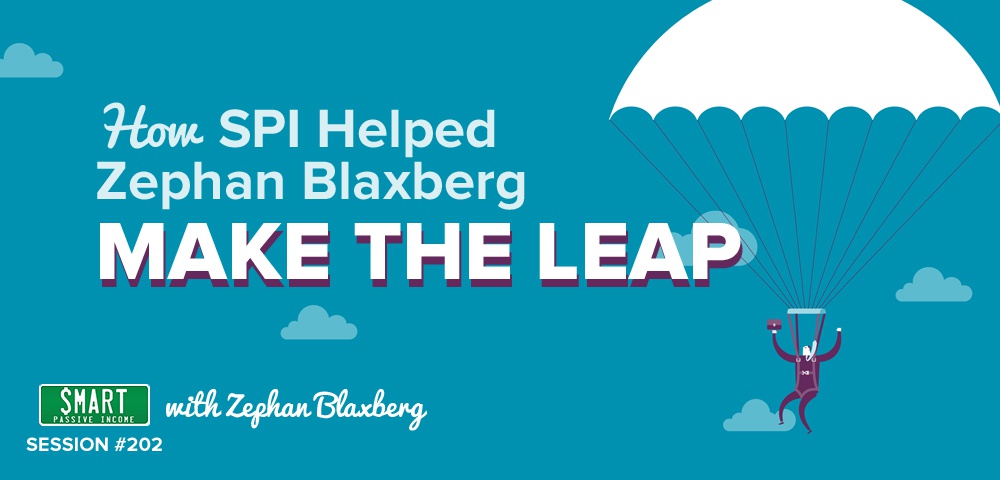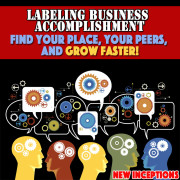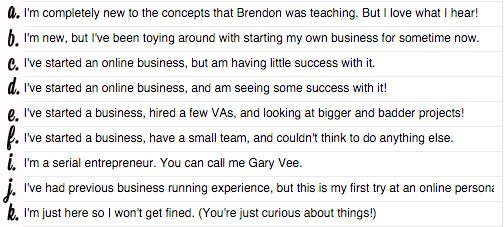AoL 039: Overcoming Obstacles in Life, Building a Church, and Pursuing Passion in Life and Business with Brawn Lide
The road to success is often not very clear. That’s one of the reasons I’m in favor of having a roadmap for your business. For many, however, even having a roadmap isn’t enough. Sometimes, an entrepreneur’s situation is so unique, that they simply have no idea where to begin. Or other times, the journey might be going smoothly, it’s just that it isn’t going fast enough for the goals that they have.
For me, my major problem was getting over my paralysis by analysis. I’m glad I finally started focusing on building New Inceptions last year. I’ve gotten a ton of experience and I’m definitely looking to ever larger opportunities.
For this session’s guest, however, even though things seem to have been going his way, he didn’t have a very long runway. In fact, when he first started his coaching business, he was mainly going on Faith that things would work out. Besides paying for his coaching training with his tax return that could have been used elsewhere (like supporting his 5 kids), he also committed to a mentorship program that almost cost nearly as much as the training itself.
When I met Brawn as my roommate at the John Maxwell Team training event, he would tell you that he was “hurtin'”. A big reason for that was that he had been a full time church planter for a couple of years at that time. What income he did have was coming from being involved as a math teacher for homeschooled kids.
Through all of this (and a little more), he’s been able to persevere and is now not only a full time JMT coach, speaker, and trainer, but a successful one.
In this session, we’ll learn why he left his stable job as a mechanical engineer to become the church planter, how he was able to grow that church from 23 to 350 members, and why he took a sales job during the time that he was building his coaching business.
If you or someone you know thinks life might be too complex to leave their comfort zone, I’d strongly urge you to listen to this chat. Brawn’s story is truly inspirational and is probably one of the best stories that I’ve heard thus far about overcoming obstacles in life. I’d especially listen if you need that extra kick in the pants to leave your comfort zone or you need help being honestly truthful with where you are in life.
SPECIFICALLY, YOU’LL FIND OUT MORE ABOUT:
- How Brawn decided that he was going to go from a stable income as a Mechanical Engineer to being a church planter. (7:20)
- What kind of struggles he had when he was trying to shed his label of Engineer (13:27)
- How Brawn was able to be a full time volunteer for four years of his life with a family by helping with home school teaching. (17:48)
- How he was able to help grow his church attendance from 23 to 350. (22:12)
- What the John Maxwell Team, and JMT Mentorship program has meant to Brawn. (25:07)
- What Brawn would tell someone if they found themselves having to suddenly lead from a position where they never saw themselves in. (31:43)
- Why he went into sales when he wasn’t able to achieve his financial goals with his coaching business. (37:01)
- How he was able to focus on his sales job, his business, and his family during this period in his career. (42:26)
- What were some keys that lead to his success in speaking and coaching (44:35)
- How Brawn was able to build his business outside of networking. (47:31)
- What he likes the most about being a professional speaker and coach (51:58)
- What are projects he sees himself doing in the next 5 years. (55:39)
- If he had money to buy commercial space on TV, what would the message be? (1:01:06)
- What purchase of $100 or less has most affected his life? (1:01:50)
- What are 3 truths he’d want to share with others (1:03:00)
- If someone wants to get out of their day job that they don’t find fulfilling? (1:08:06)
- … and MUCH more!
Right click here and save-as to download this episode to your computer.
ITEMS and PEOPLE MENTIONED IN THIS EPISODE:
- Brawn Online: Website and Facebook
- Wells Branch Community Church
- John Maxwell Team
- Mark Nathan’s AoL Interview (Session 23)
- Mark Nathan’s Facebook LIVE Video for Pre-Launch
SHOW NOTE EXTRAS:
Brawn on what he does:
Brawn’s first interaction with John Maxwell:
Getting into Mechanical Engineering Wasn’t Easy:
John Maxwell and Brawn on what the word “Potential” means:
Thanks for Listening!
Thanks so much for joining us again this week. Have some feedback you’d like to share? Leave a note in the comment section below!
If you enjoyed this episode, please share it using the social media buttons you see at the top of the post.
Also, please leave an honest review for The AoL Podcast on iTunes! Ratings and reviews are extremely helpful and greatly appreciated! They do matter in the rankings of the show, and we read each and every one of them.
If you have any questions feel free to email them over via the email mentioned in the show or by our contact form.
And finally, don’t forget to subscribe to the show on iTunes, Stitcher, Soundcloud, and/or Google Play Music. It’s absolutely free to do so.
A huge thank-you to you guys for joining us!
Cheers!








